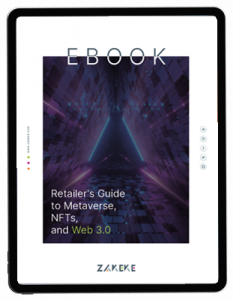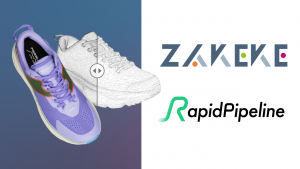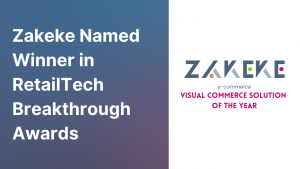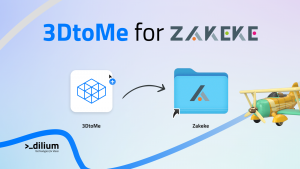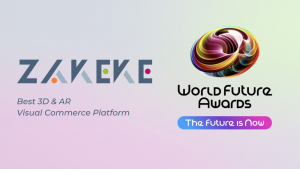In a world where digital assets are becoming increasingly valuable, the concept of ownership is undergoing a radical transformation. NFTs (Non-Fungible Tokens), blockchain-based assets, are said to revolutionize how we think about ownership, value, and authenticity.
But how do these digital assets intersect with the ever-evolving landscape of e-commerce? In this article, we’ll explore the pillars of NFT ownership, their potential applications in e-commerce, and the advantages they offer.
We’ll also delve into some real-world case studies and provide a guide for e-commerce brands looking to embrace this new technology.
Introduction: The Intersection of NFTs and E-commerce
E-commerce has always been about convenience and scalability, offering many options for consumers and businesses. NFTs, on the other hand, bring the elements of uniqueness and ownership into the digital realm.
When these two worlds collide, we get an ecosystem where digital assets can be easily traded, owned, and authenticated while providing new ways to engage with customers.
The Pillars of NFT Ownership
How does NFT ownership work?
Safety
Owning an NFT means you have verifiable proof of ownership stored in the blockchain over your digital asset.
Uniqueness
By now, you should know what “NFT” stands for. However, it may not be clear what “Non-fungible” means. It means NFTs can’t be swapped for or changed with another NFT, contrary to money, where 10€ can be exchanged for another 10€, which wouldn’t matter. In simpler terms, each NFT is unique; it has specific information distinguishing it from any other token.
Interoperability
NFTs can be used across different applications and services, providing a seamless experience for the owner.
Transparency
The blockchain technology underpinning NFTs ensures that all transactions are transparent and can be audited, enhancing trust and security.
Potential Applications of NFTs in E-commerce
Before we dive into the specifics, it’s crucial to note that the examples we’re about to explore are merely food for thought. These are successful forerunners in the NFT space, serving as illustrative cases to give you a flavor of what’s possible. The applications of NFTs are vast and can extend into various other domains.
Ownership in Games: Sorare and Top Shot
In the gaming realm, NFTs are redefining what ownership and engagement mean. Platforms like Sorare and Top Shot allow users to own, trade, and even engage with officially licensed digital cards or moments from their favorite sports.
These aren’t mere collectibles; they’re assets that can be utilized within the game’s ecosystem, adding an intriguing layer of strategy and value.
NFTs for Works of Art
The art sector has been among the early adopters of NFTs, offering artists and collectors a secure and immutable platform to buy, sell, and trade art. The NFT technology opens new revenue streams for artists and offers consumers a unique avenue to interact with art.
NFTs as Certificates of Ownership
NFTs can act as digital certificates of ownership for a wide array of digital and physical products. These certificates can authenticate the origin and even the ethical sourcing of products, providing a transparent and tamper-proof verification method. This is especially beneficial in industries plagued by counterfeiting.
These are good thought-for-thought examples that for e-commerce could take the following forms:
Digital Collectibles
Imagine owning a collection of limited-edition NFTs that grant you access to exclusive benefits. These could range from special discounts on an e-commerce platform to event VIP experiences.
Valuable assets as NFTs
Turning valuable assets into NFTs can increase the liquidity and the capacity for trading them.
Authenticity and Ownership
Brands can issue NFTs as certificates of authenticity for physical products, enhancing consumer trust.
Advantages of Integrating NFTs into E-commerce
Enhanced Customer Engagement
NFTs can serve as a powerful tool for customer engagement, offering exclusive content or experiences to holders. For example, they are a great tool to implement gamification mechanisms or to spice your loyalty program up.
New Revenue Streams
The resale of NFTs can provide brands with a percentage of the profits through smart contracts, creating a new revenue stream.
Community
NFTs can help in building a solid community around your brand. By offering exclusive NFTs, you can create a sense of belonging among your customers, leading to increased loyalty and advocacy.
Increased Trust
The blockchain technology underlying NFTs is transparent and immutable, increasing consumer trust.
How does NFT Prove Ownership: Case Studies
Breitling
In collaboration with French web3 studio Arianee, Breitling has been pioneering blockchain-certified “passports” for their products since 2020. These digital certificates offer transparency in raw material sourcing and improved customer service, seamlessly integrating Web3 technology into their existing Web2 app.
NBA Top Shot
Launched in beta in October 2020, NBA Top Shot allows fans to own and collect NFT-based NBA highlight clips. Targeting Gen Z and Millennial basketball enthusiasts, the platform has successfully onboarded a mainstream audience, offering various payment options and easy UX. At its peak, it generated over $45 million in a single day.
Bialetti
Bialetti, the iconic coffee brand, has ventured into the NFT space with its Moka Expressions collection. Targeting tech-savvy coffee lovers, the limited-edition NFTs offer exclusive physical and digital experiences, including membership tiers with additional benefits like access to archival prints and private virtual events.
In conclusion, NFTs offer a new paradigm for digital ownership and have the potential to innovate e-commerce. The possibilities are endless, from creating new revenue streams to enhancing customer engagement and trust.

DVRS
DVRS is a pioneering Web3 studio, guiding brands on their blockchain journey. With a team of seasoned blockchain engineers and crypto-native experts, they create immersive experiences and build digital communities, setting new standards in the Web3 space.




